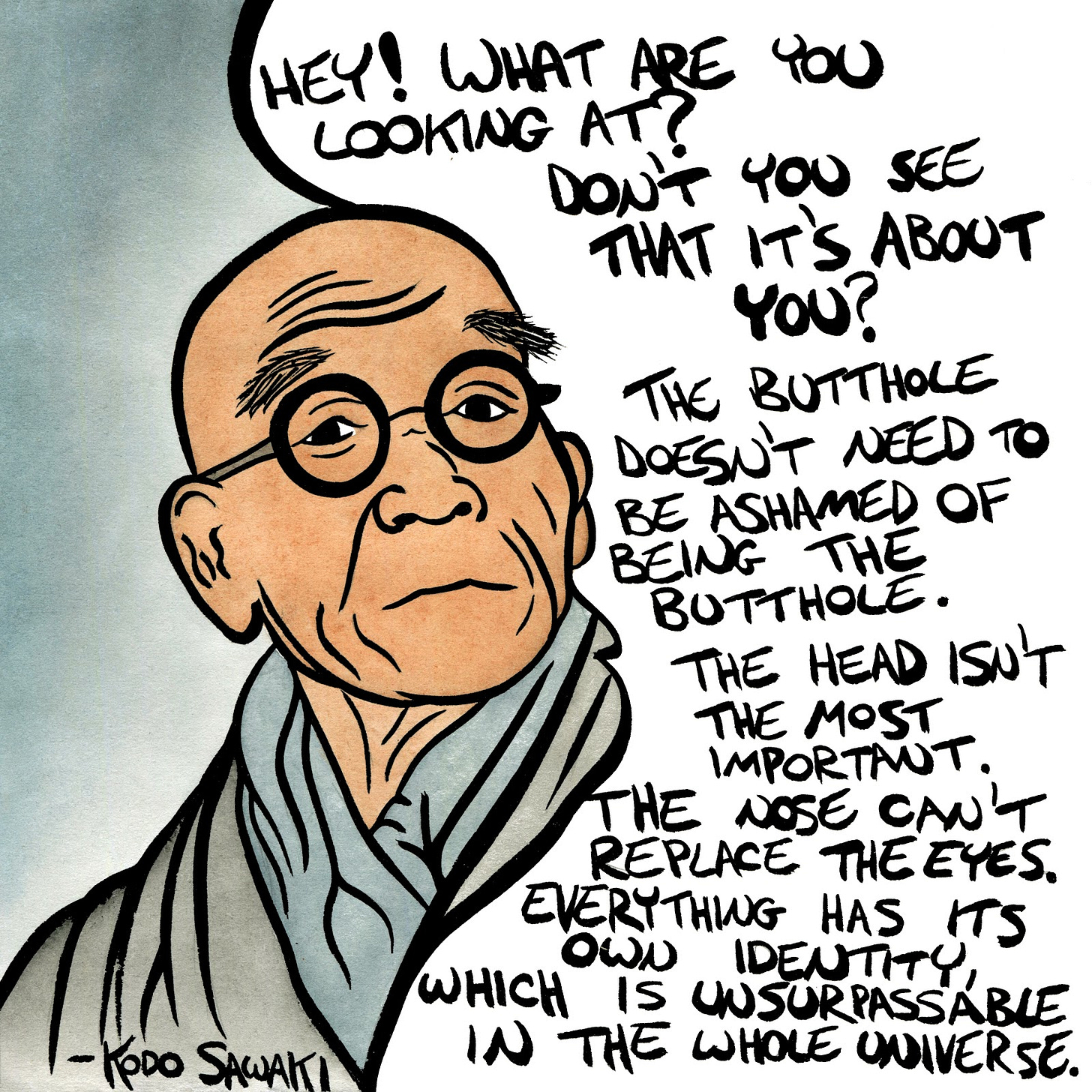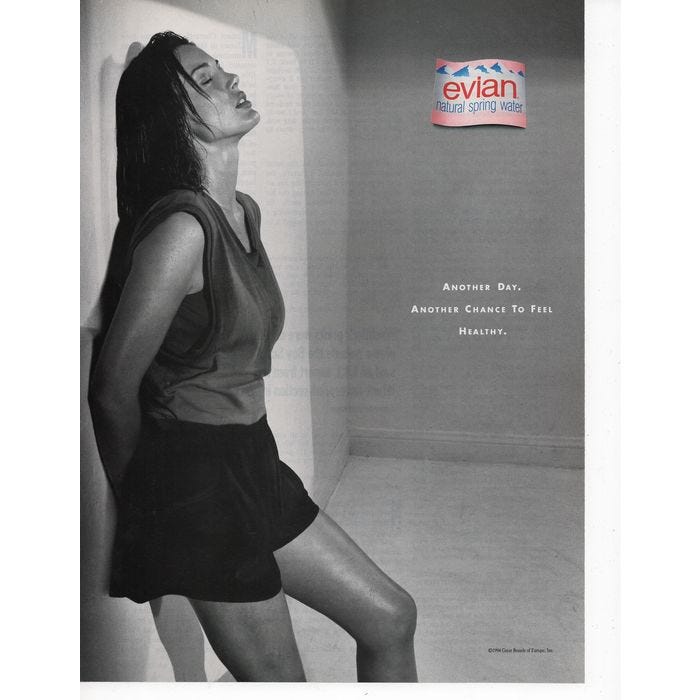Tiny Revolutions №51: It's About You
everything has its own identity ❄️
Hi, I’m Sara, and this is Tiny Revolutions, a weekly-ish dispatch of personal writing and links about becoming who you are. Reply anytime, I love to hear from you.
I gave a talk last week at Angel City Zen Center about Kodo Sawaki, an influential teacher of Zen Buddhism from the 20th century. He was known as “Homeless Kodo” because he didn’t have a home temple where he practiced for most of his life, and he was also known for visceral teachings like the one in the cartoon above.
Sawaki was orphaned at a young age and went to live with his uncle, who then died and passed him along to another uncle who was a relation by marriage. This adoptive family was not a good one — both parents were abusive, and they operated a gambling parlor in the home at night. Still, they lived near a Buddhist temple, and Kodo described how as a child he once saw some monks chanting, and he never forgot the peace he felt hearing it despite the chaos of his home life. It was what led him to seek out the monastic life later on.
I’ve been thinking about old Kodo all week, and how, as our lives unfold in the mysterious ways they do, we can look back and see distinct signs of what was to come. Kodo saw the monks chanting, and that experience resonated in some deep way that would only make sense to him later on.
My own story in this vein, or one of them, at least, is almost comically American. I was an avid reader of magazines from a young age, a habit I picked up from my parents, who kept our coffee table stocked with issues of Parade and Good Housekeeping and Redbook along with trashier stuff like The National Enquirer and Star.
In my late teens, after many years of digesting the messages therein, I came across an ad that really struck me. It was for Evian water, and it said “Another day. Another chance to feel healthy.”
Basically every other ad in that era was trying to sell you a fully-realized image of perfection, so just inserting the notion that you might have to work at something day-by-day was radical. By then I was already furious with myself for failing to be as thin and gorgeous as a model, and I distinctly remember looking at this ad and thinking, “Wow, good point. Maybe there’s hope for me yet.” And truly, it was hopeful – it still is! Thankfully I’ve moved onto more worthwhile aspirations, but it’s comforting to know that no matter what you did the day before, you can still wake up and decide to do things differently.
It’s just hard to keep this in the front of your mind. It’s a practice, as they say. Remembering that every day is a new start. That each moment offers a chance to come back to yourself. Who knows, maybe that ad was what launched me on the path to studying Zen, which is constantly reminding you to embrace the truth of the present moment, because now is all we have.
I relay this because it’s the beginning of a new year, and it’s one that is off to a rocky start for many people, myself included. We want to do great things, to improve, to progress, to inspire, and yet here we are, every day, stuck with this same old person we’ve always been in a world that can seem awfully dark a lot of the time.
So now I have to point us back to Homeless Kodo:
“The butthole doesn’t need to be ashamed of being the butthole. The head isn’t the most important. The nose can’t replace the eyes, and the mouth can’t replace the ears. Everything has its own identity, which is unsurpassable in the whole universe.”
It takes effort to not become cynical and write ourselves – and, indeed, the world – off as lost causes because they’re not how we think they should be. To accept who we are and to also try a little harder. After all, as another Zen master, Shunryu Suzuki, said, “Each of you is perfect the way you are...and you can use a little improvement.”
A few other quotes from Kodo Sawaki I thought were worth sharing:
“You can’t even trade a single fart with the next guy. Each and every one of us has to live out his own life. Don’t waste time thinking about who’s most talented.”
“You lack peace of mind because you’re running after an idea of total peace of mind. That’s backwards. Be attentive to your mind in each moment, no matter how unpeaceful it might seem to be. Great peace of mind is realized only in the practice within this unpeaceful mind. It arises out of the interplay between peaceful and unpeaceful mind.”
“You don’t seek the way. The way seeks you.”
More from Kodo Sawaki:
What a week, huh? Let’s hope for a lighter one ahead.
😘
Sara





This is wonderful, thanks!
Dear Sara, my wife and I read this together. We were heartened. I’m leaving home and beginning a new job this week. I will be away from her and home for 4 months. This lesson is helpful. Thank You.